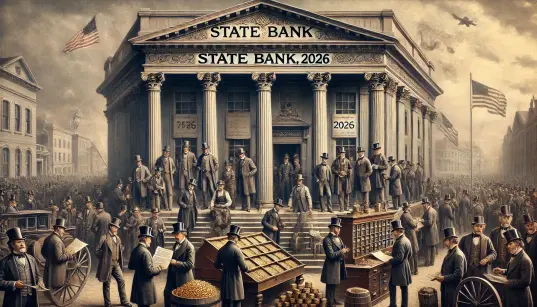Populist Rebellion Against Central Banking: Jackson vs. Trump
Jackson Context: Jackson viewed the Second Bank of the United States as a corrupt, elitist institution that served powerful Eastern interests and undermined democracy.
Actions:
- Vetoed the Bank’s recharter in 1832.
- Moved federal deposits to State-chartered "pet banks."
- A battle between people and entrenched financial power.
Philosophy: Advocated for hard money (gold and silver), decentralization, and suspicious of concentrated financial authority.
Outcome: The Bank was dismantled. This ushered in the Free Banking Era but also contributed to the Panic of 1837. Jackson, however, solidified his legacy as the populist slayer of financial tyranny.
Trump Context: Trump has frequently criticized the Federal Reserve for raising interest rates and slowing economic growth, especially when politically inconvenient.
Actions:
- Pressured Fed Chair Jerome Powell to lower rates.
- Publicly floated the idea of firing Powell.
- Advocated for zero or even negative interest rates
Philosophy: Populist-nationalist with a focus on growth, control, and market performance over monetary discipline.
Outlook: Trump may attempt to assert greater executive control over the Fed, setting up a modern-day version of the Jacksonian Bank War.
Key Parallels
Jackson (1830s) vs Trump (2016– )
- Distrusted centralized banking - Distrusts Federal Reserve independence
- Attacked financial elites - Attacks the financial "deep state"
- Promoted State-level banking - Supports alternative monetary systems
- Populist outsider vs. establishment - Populist outsider vs. establishment
- Preferred hard money - Promotes gold/crypto narratives
Why It Matters
America is once again revisiting its foundational tension: centralized monetary authority vs. decentralized populist alternatives. Jackson reshaped the financial order for a generation. Trump could do the same in a digital, post-Fed era—especially if alternative systems (like State gold tokens) begin gaining traction.
Both figures embody rebellion against financial orthodoxy. One wielded the veto pen and hard specie. The other may wield executive power and blockchain.
History doesn’t repeat, but it rhymes.
If 1830s Jackson was analog, Trump is the postmodern equivalent—taking the populist war on central banking into the age of digital finance.





Comments